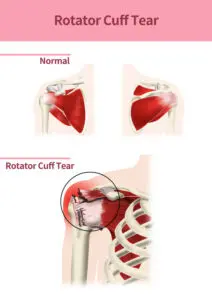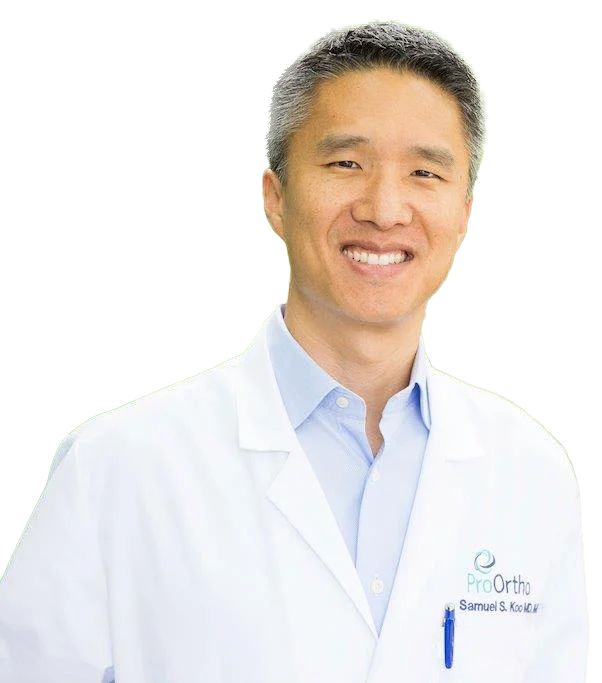Treatment for Torn Rotator Cuff in Seattle, WA
A torn rotator cuff is a fairly common injury, as well as a painful one. These tears can occur as either a partial, or total tear, which may or may not require surgical treatment depending upon the severity of the individual case.
Basic Shoulder Anatomy
The rotator cuff itself is made up of four muscles that together form a single cuff of tendon that connects to the head of the humerus. This cuff is what allows the shoulder to move around in all directions.
Much of the movement that our arms make is determined by the rotator cuff, which is why injuries to this area can be particularly painful. Even a task as simple as lifting your arm above your head would be impossible with a torn rotator cuff.
What Causes a Rotator Cuff Tear?
In reality, there are an immeasurable number of ways in which a person could injure their rotator cuff. However, most often, a torn rotator cuff occurs from:
- Repetitive motions
- Multiple injuries to the rotator cuff
- Heavy lifting
- Falling onto the arm or shoulder
- Athletic activities, especially those involving lots of shoulder movement like tennis or baseball
- Shoulder impingement syndrome
Symptoms of a Torn Rotator Cuff

At first, the pain will likely radiate from the front of the shoulder before spreading down the arm. This pain will become more intense when the arm is lifted or lowered and may even begin to disrupt your sleep.
In cases of more severe injury, the pain will be immediate. It will also be instantly difficult for the person to move their shoulder joint in any way as there is no longer anything holding the shoulder muscles to the bone.
Diagnosis of a Shoulder Injury
Because shoulder injuries may vary on a case-by-case basis, your Dr. Koo will need to perform an X-ray, ultrasound, MRI, or a combination of these imaging tests in order to determine the full extent of damage that has been done to the rotator cuff.
Rotator Cuff Treatment Options
Not all rotator cuff tears will require surgery. Adequate rest, physical therapy, and pain medications may be enough for some tears to heal on their own, but if the injury does not improve over a significant period of time then surgery is likely the best option.
Like the diagnosis process, discussions regarding surgery for a rotator cuff repair will need to be individualized for the exact patient and their exact injury. Fortunately, recent achievements in the healthcare industry have allowed surgical procedures to become incredibly advanced, leading to less recovery time for patients.
Schedule a Consultation for Rotator Cuff Repair
To speak with Seattle shoulder surgeon Samuel Koo, MD, MPH about your rotator cuff injury, or ways that you can prevent future damage to your shoulders, please contact our office at (425) 823-4000 to schedule an appointment at our area office located in Seattle, WA. Dr. Koo performed more than 375 shoulder surgeries last year, so you know you’re in experienced hands. You can also request an appointment through our secure online form. Our office is located in Kirkland, just a short drive from Redmond, Bellevue, and Seattle.


